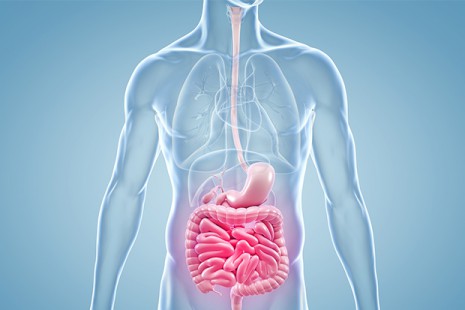Read the following part of the text carefully and answer the multiple choice questions listed below.
Metabolic syndrome
Metabolic syndrome is the clinical condition characterized by the coexistence of the following risk factors:
(which is defined as waist circumference - for Europeans: above 94 cm in males and above 80 cm in females)
plus leastways two of the following:
- Elevated blood pressure; above 130/85 mmHg
- Raised triglycerides: 150 mg/dl and above
- Elevated fasting plasma glucose: 100 mg/dl and above (or previously diagnosed diabetes mellitus type 2)
- Reduced HDL cholesterol: below 40 mg/dl in males; below 50 mg/dl in females
International Diabetes Federation, 2005
These factors result mainly from lifestyle - unhealthy diet and insufficient physical activity, but also from genetic predispositions and fetal programming.
The elements of metabolic syndrome may in consequence lead to the development of cardiovascular diseases, stroke, diabetes mellitus, hyperuricemia, non-alcoholic fatty liver disease, erectile dysfunction in men, polycystic ovary syndrome in women and other.
Obesity
Obesity is a chronic disease diagnosed when BMI reaches above 30 with simultaneous excessive amount of fat tissue. It evolves mostly as a result of positive energy balance, when the intake of calories is excessive and stored as a fat tissue. Obesity increases the risk of medical illnesses and is often associated with premature death, lack of independence and economic burden. We differentiate three stages of obesity, based on BMI.
Część artykułu pochodzi z 6 modułu (Metabolic syndrome) kursu e-learningowego "English for Clinical Dietetics and Nutrition".
Czarnym kolorem oznaczono: useful words and expresions, niebieskim kolorem oznaczono: useful words with prepositions, zielonym kolorem oznaczono: useful collocations.
Magdalena Osińska

Otyłość − to nadmierne nagromadzenie tkanki tłuszczowej w organizmie, przekraczające jego fizjologiczne potrzeby i możliwości adaptacyjne, mogące prowadzić do niekorzystnych skutków dla zdrowia. Za otyłość uważa się stan, w którym tkanka tłuszczowa stanowi więcej niż 20% całkowitej masy ciała u mężczyzn oraz 25% u kobiet.
czytaj dalej
Monika Dudek-Palaczyk

Zespół fibromialgii należy do chorób niezapalnych, które charakteryzują się przede wszystkim, występowaniem uogólnionego bólu mięśni szkieletowych w połączeniu z tkliwością uciskową dotykanego miejsca na ciele pacjenta. Obszary te są określane przez lekarzy i fizjoterapeutów jako tzw. „punkty tkliwe”. Dodatkowo obserwuje się również szereg dolegliwości współtowarzyszących.
czytaj dalej
Katarzyna Drews-Raczewska

Zespół jelita nadwrażliwego (IBS – Irritable Bowel Syndrome) jest zaburzeniem o charakterze czynnościowym. Najczęściej związane jest z przewlekłym występowaniem niespecyficznych problemów ze strony przewodu pokarmowego.
czytaj dalej






